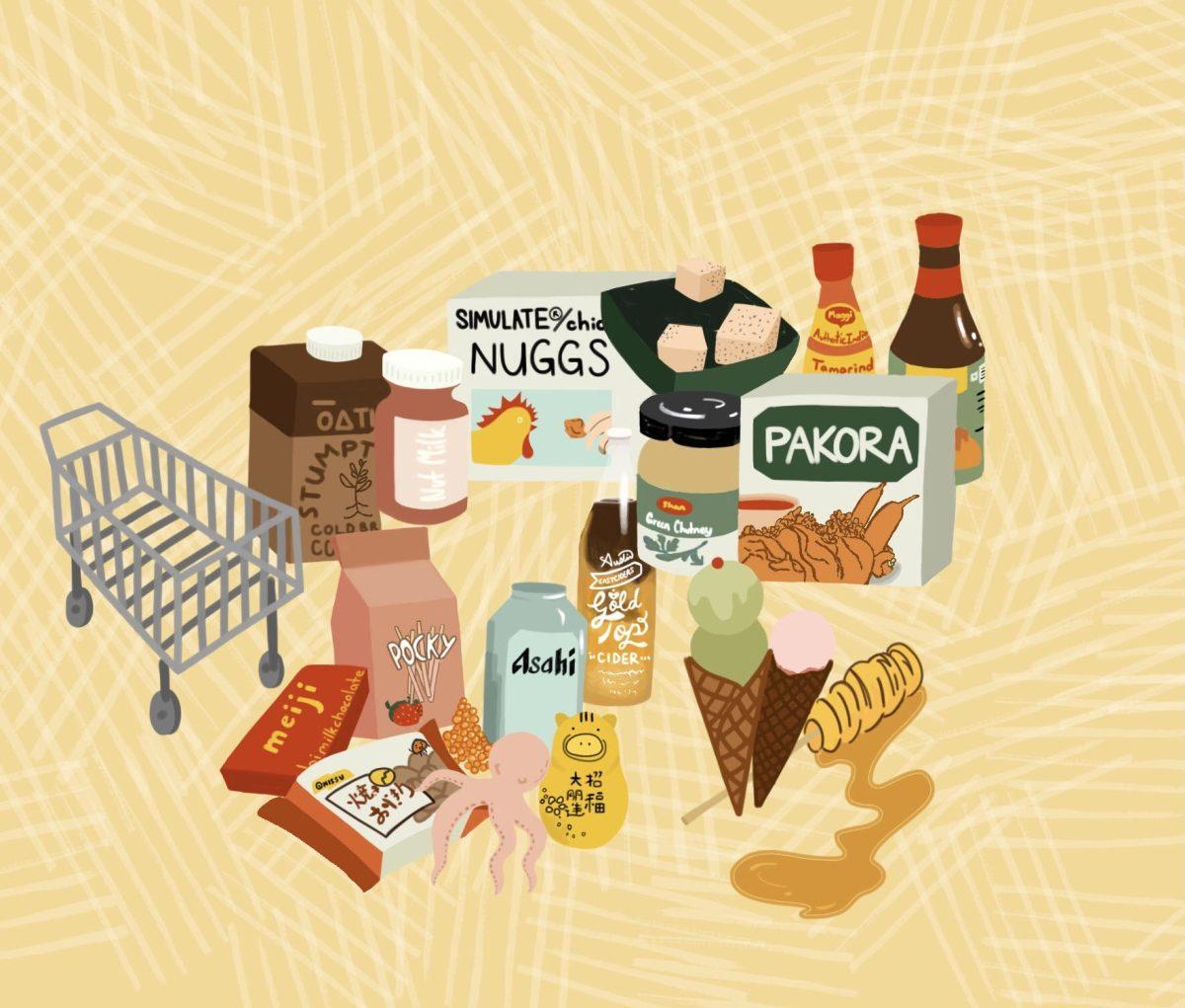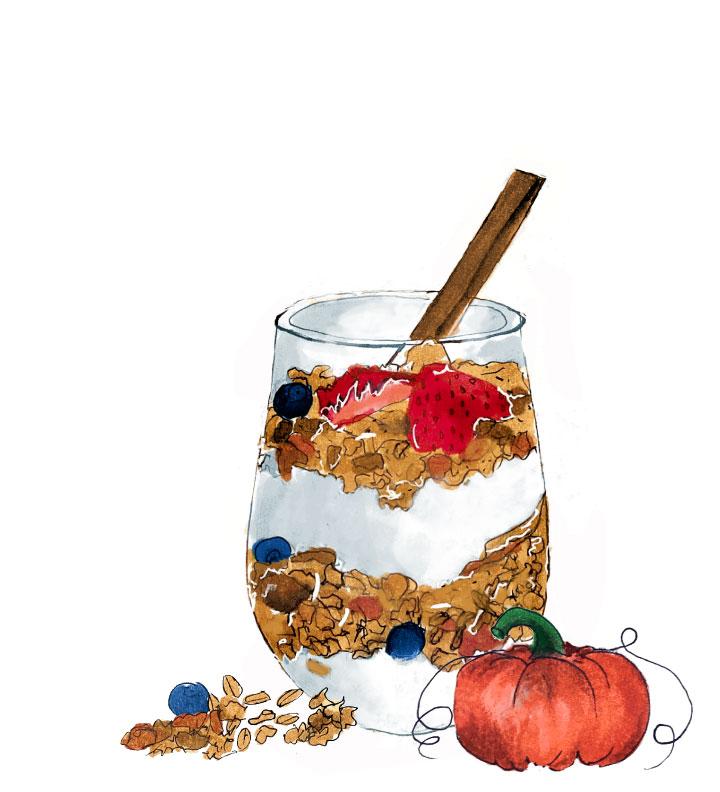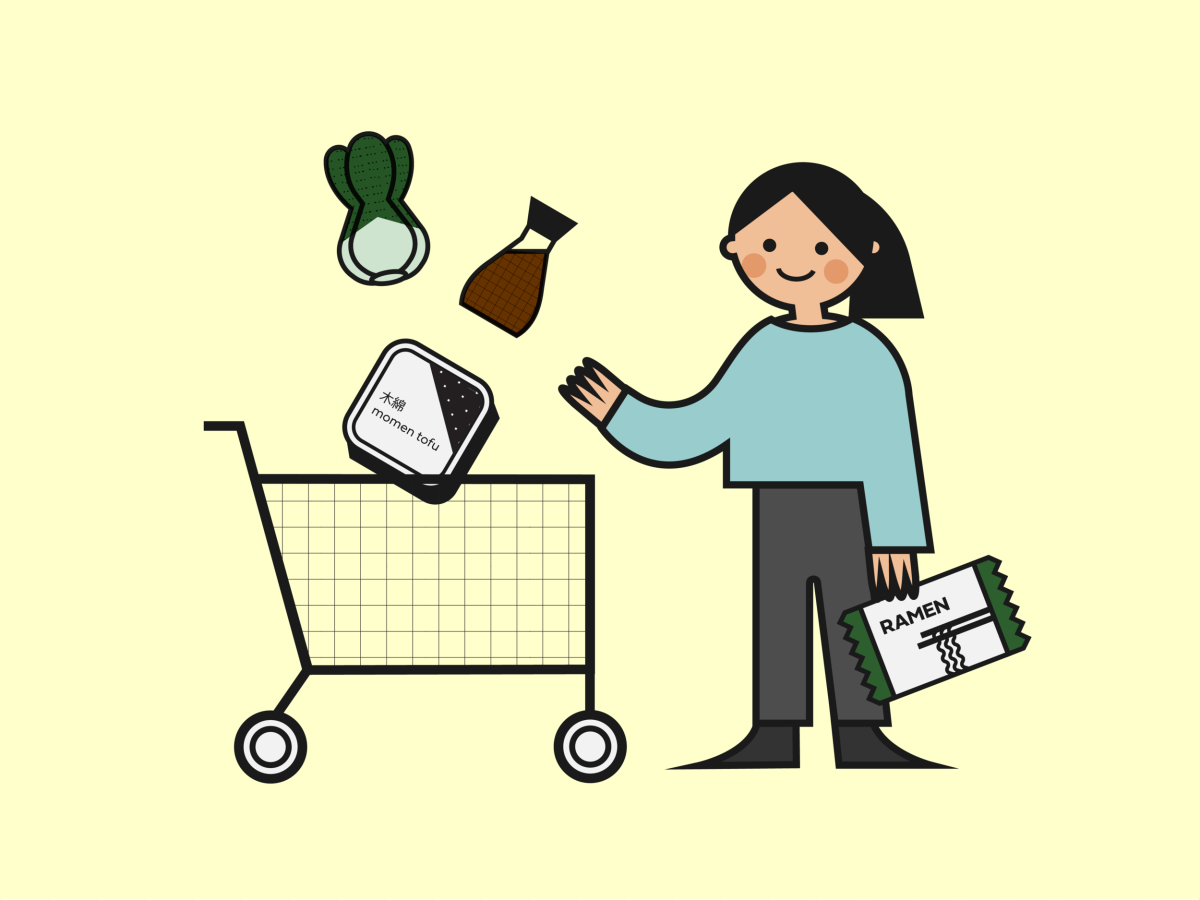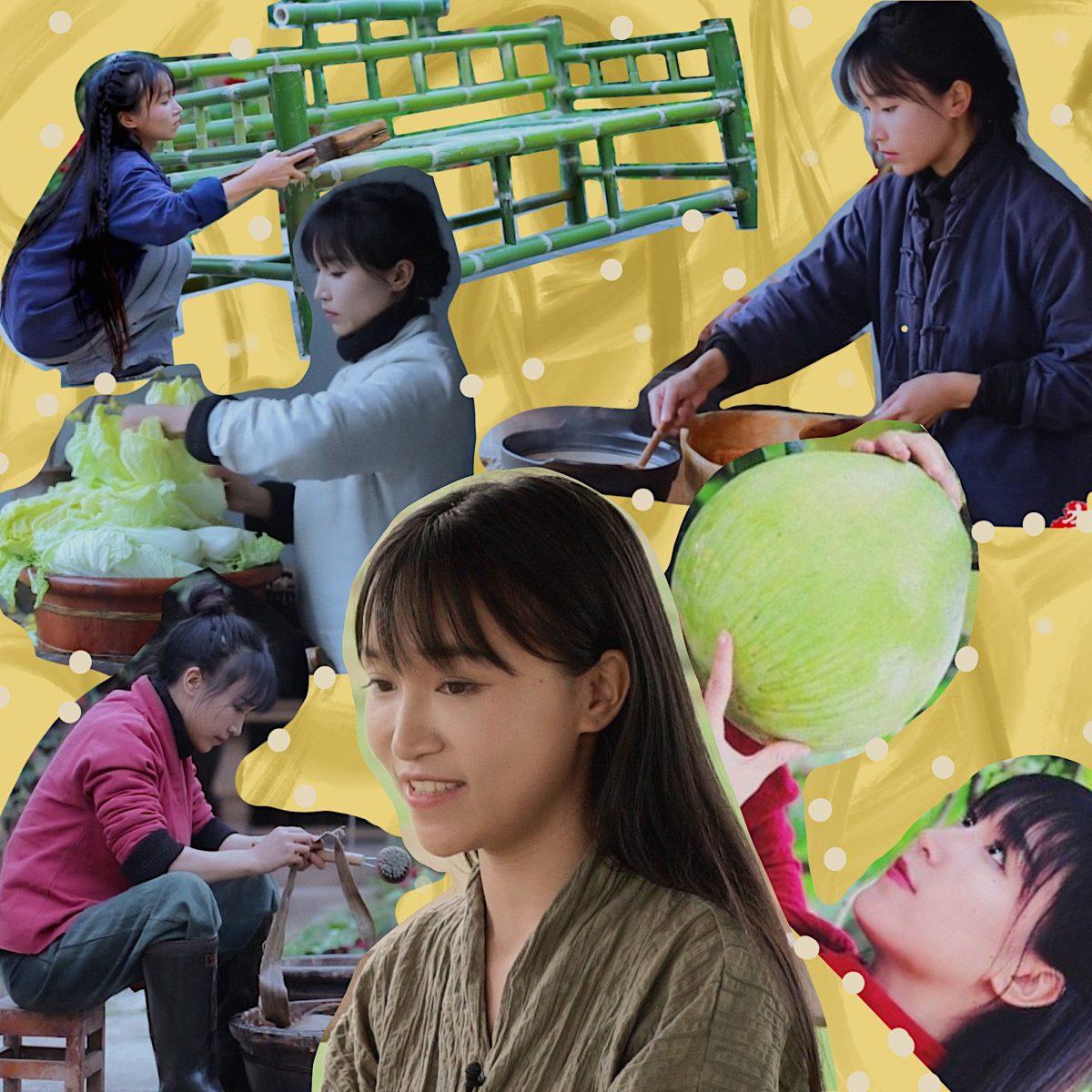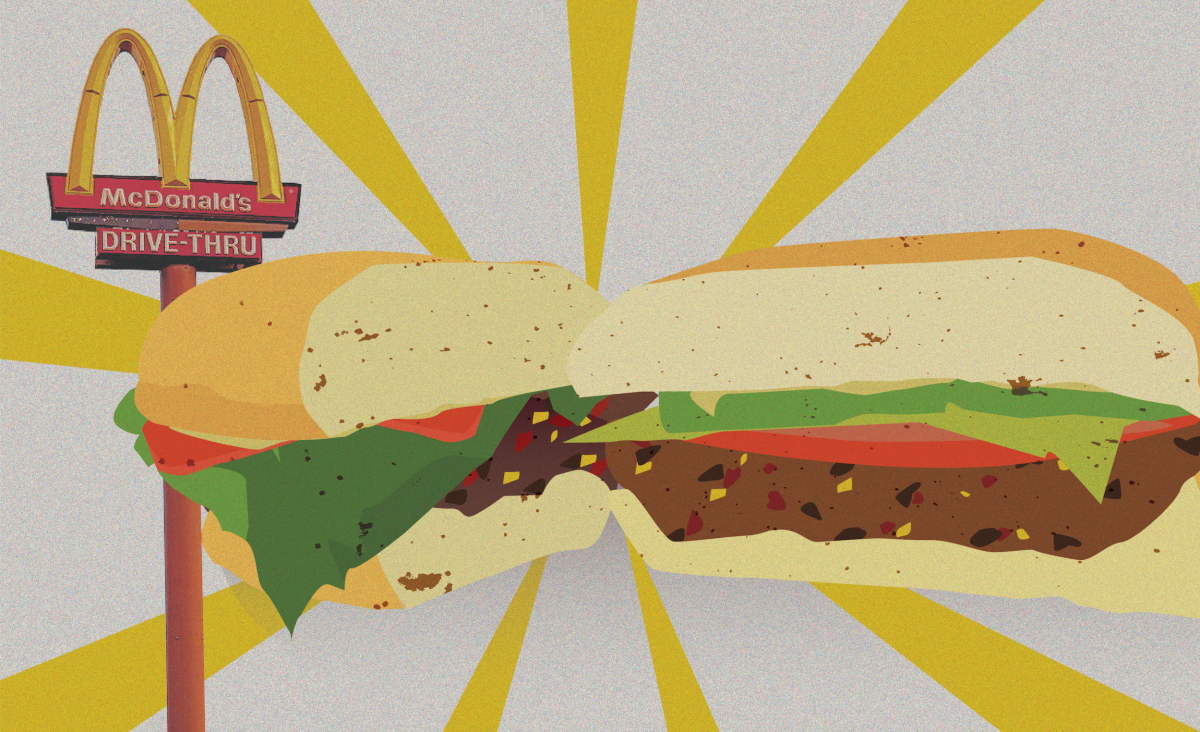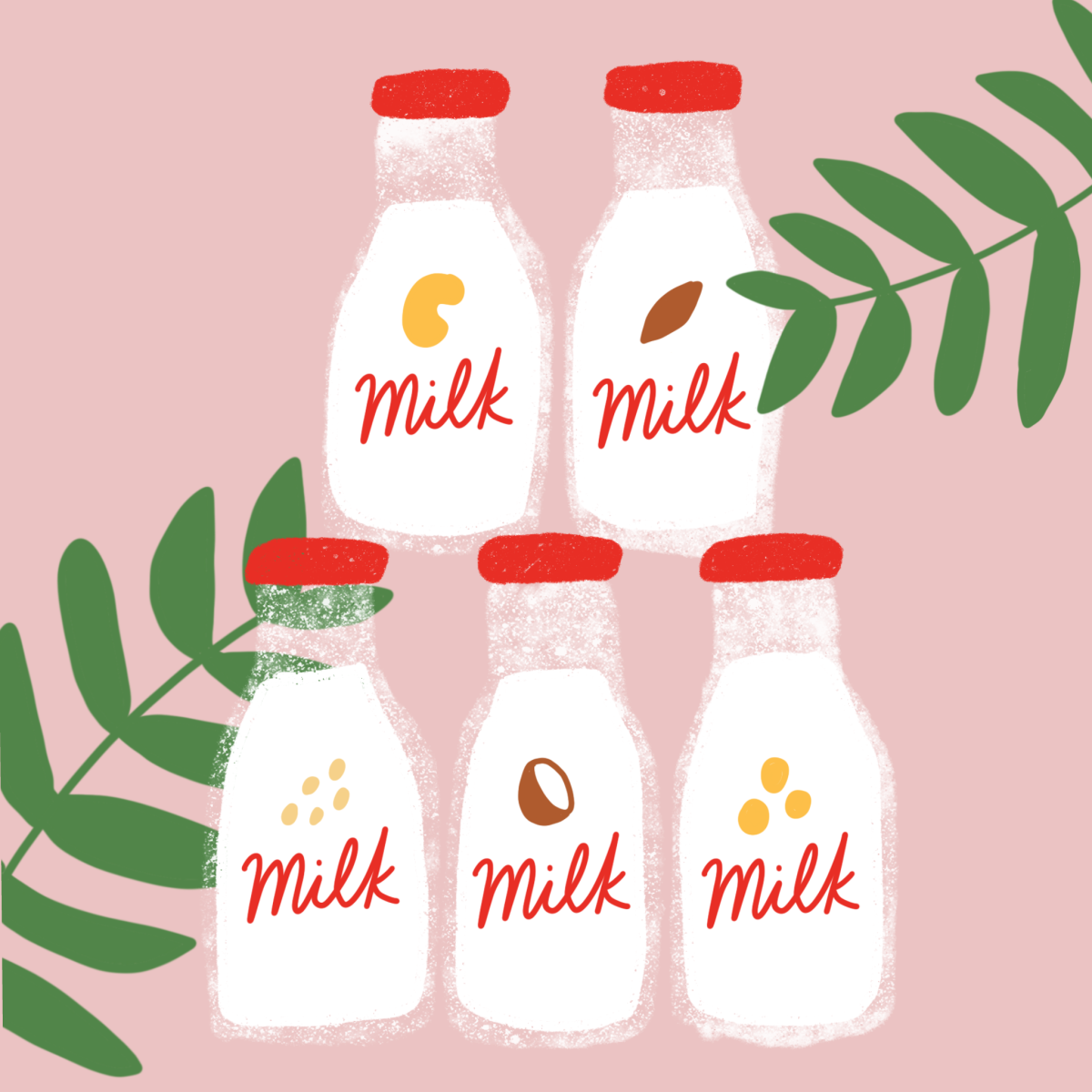Story by Jenna KhakooIllustration by Crystal Garcia
Whether it’s about saving the planet, sedimentary rocks or the Grateful Dead, Professor Jay Banner’s passion shines through during his lectures. Banner teaches several classes in the Jackson School of Geosciences. As would be expected from someone so in touch with the environment, Banner could be considered a master at sustainable cooking. As would be expected from everyone, he also enjoys a good chocolate fudge cake.

ORANGE: What is your favorite meal to cook?
BANNER: I enjoy cooking, although I don’t always have enough time. My favorite meal to cook is one where I start with a frying pan and olive oil. Then, I add an onion, garlic and whatever is in the fridge. It’s always good. If it was shoe leather, it would be good as long as the onions and garlic are caramelized. Except for maybe cottage cheese—it just doesn’t look right.
ORANGE: What methods do you use to be sustainable while cooking?
BANNER: I start with vegetables that are grown in a sustainable way. I also try to get all natural meat and seafood. I go to Boggy Creek Farms on Saturday mornings to get vegetables. Being sustainable starts with what you use.
ORANGE: If you were to have dinner with a hero, dead or alive, who would it be? And where in Austin would you take him or her?
BANNER: I would take two people to dinner. I would take John Robbins, he was the heir to Baskin Robbins until he visited the production facilities and saw how badly the cows were treated. He wrote a book called Diet for a New America. It had a major impact on my life. The other person I would take would be Jerry Garcia. The Grateful Dead has made some of my favorite music, and I’ve seen a lot of their shows. I would love to talk about how Garcia was inspired to write music. I would take them to Fonda San Miguel. It’s an enormous, old house with a big dining room and art, but it’s really about the food. Everything I’ve had has been really good. I’ve become enamored with the Mexican cuisine.
ORANGE: If you could eat or drink one thing everyday for the rest of your life and not suffer consequences, what would it be?
BANNER: A layered fudge chocolate cake. Specifically, the one I got when I lived in New York City at a place called Adrian’s Bakery on 73rd Street in Queens. After delivering my newspapers, I would get a slice of checkerboard cake. It had fudge icing between each layer. It kickstarted my chocolate addiction! I can still taste it now.
ORANGE: What tips do you have for someone trying to practice more sustainable cooking methods?
BANNER: Research! It’s not that hard to get things that are grown in a sustainable way. Organic is one thing, local is another. So the strawberries from Chile might be a little redder than the strawberries grown locally, but the strawberries grown here are damn good! Food miles play a major role in sustainable cooking. When food is transported to a region, like central Texas, from far away, then the transportation process involves using energy and this results in greenhouse gas emissions. The more miles the food travels to get to the point of use, the higher the environmental impact.






























